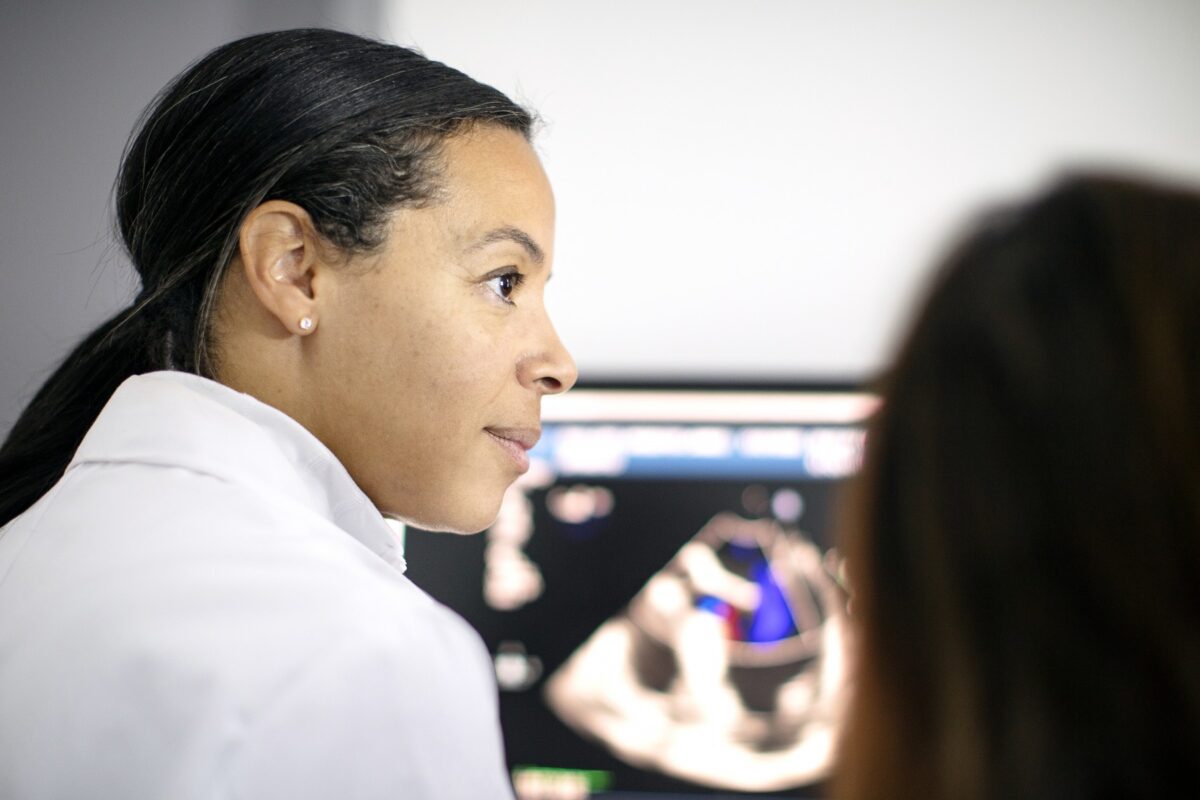A Smidt Heart Institute analysis of lung transplantations performed nationally shows significant help for patients with severe, irreversible lung damage from COVID-19.
The analysis of more than 3,000 lung transplants in the U.S. between Aug. 1, 2020, and Sept. 30, 2021, showed that during the pandemic, 7% of the nation’s lung transplants were performed to treat severe, irreversible lung damage caused by COVID-19. More than half of these patients needed ventilators or extracorporeal membrane oxygenation, or ECMO, before their transplant.

“Our experience treating COVID-19 has shown us that ECMO can be used in carefully selected patients, Joanna Chikwe, MD either as a bridge to lung transplantation, or to allow a patient’s own lungs to heal,” said Joanna Chikwe, MD, founding chair of the Department of Cardiac Surgery in the Smidt Heart Institute at Cedars-Sinai, the Irina and George Schaeffer Distinguished Chair in Cardiac Surgery, and corresponding author of the data published in The New England Journal of Medicine (NEJM). “Most of these COVID-19 patients would have been considered too ill to transplant a few years ago, and the surprising finding of our research was how well they did after lung transplantation.”
While on ECMO, a patient’s blood is pumped out of their body, put through an artificial lung, then pumped back into the patient’s body. The machine-similar to a heart-lung bypass machine-has been around for several decades, although its use for lung failure has increased significantly in the past decade.
In the past, ECMO has been widely considered a “Hail Mary pass” by experts. However, the technology has been employed so often during the global pandemic that Cedars-Sinai physicians have learned new, effective ways to utilize the machine and save lives.
Data published in NEJM was collected from the United Network for Organ Sharing (UNOS), the nonprofit organization that manages the nation’s organ transplant system. Results from 3,039 lung transplantations show:
· The average age of COVID-19 lung transplant patients was 52.
· 21% of COVID-19 lung transplant patients were female.
· 36.6% of COVID-19 lung transplant patients were Hispanic.
· Among the 214 COVID-19 lung transplants, the three-month survival was 95.6%.
· Of the 214 COVID-19 lung transplants, 140 patients had COVID-19 acute respiratory distress syndrome, and 74 patients had COVID-19 pulmonary fibrosis.
“Acute respiratory distress syndrome involves an acute inflammation of the lungs, resulting in decreased ability for the lungs to oxygenate and ventilate,” said Amy Roach, MD, a general surgery resident and Nagel Research Fellow in the Department of Cardiac Surgery in the Smidt Heart Institute and first author of the published data. “In some patients this progresses to COVID-19 pulmonary fibrosis, which causes scarring in the lung and is generally irreversible.”
Throughout the pandemic, Smidt Heart Institute physicians and surgeons have learned how best to treat patients with ECMO.
“Now we know we must mobilize patients and reduce sedatives, whenever possible,” said Dominick Megna, MD, surgical director of the Lung Transplant Program, assistant professor of Cardiac Surgery and an author on the study. “We also have a deeper understanding of how long an individual patient can safely remain on ECMO.”
Between July 2020 and June 30, 2021, Cedars-Sinai provided more than 30,000 hours of ECMO care to patients. Of those 30,000 hours, 21,000 hours were for patients with severe lung disease due to COVID-19.
“Our analysis suggests lung transplants may be a safe option for select patients with the most severe, irreversible lung damage from COVID-19,” said Reinaldo Rampolla, MD, medical director of the Lung Transplant Program at Cedars-Sinai and one of the authors. “However, our hope is that no one has to go through ECMO or lung transplant because of COVID-19. The best protection we have against severe, aggressive disease is vaccination.”